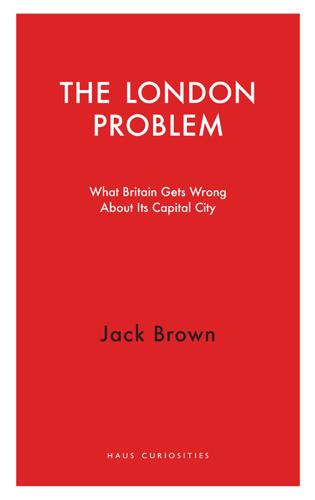
The London Problem: What Britain Gets Wrong About Its Capital City
by
Jack Brown
Published 14 Jul 2021
All of which makes it very hard to write a calm, balanced response to this issue; I have attempted to do so nonetheless. 1 People and Place Before we attempt to unravel the many different threads of historical and contemporary anti-London sentiment, we must first understand what ‘London’ and ‘Londoners’ really are. Both the city’s people and the place itself are often stereotyped, misunderstood, and misrepresented, both wilfully and accidentally. While the reality is of course complex and multifaceted, a little more understanding about the capital itself – from its historical origins to its place in the UK economy today – is important. So, too, is an understanding of the much-maligned people who live there. Londoners At the start of 2020, before the coronavirus pandemic, London was home to nine million people, and this figure was expected only to increase.
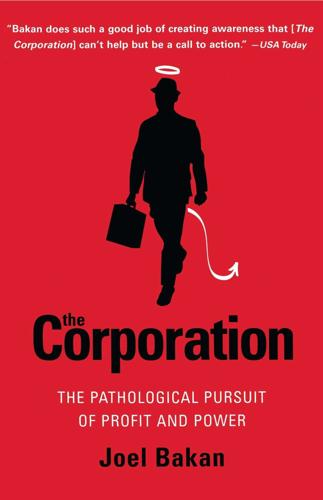
The Corporation: The Pathological Pursuit of Profit and Power
by
Joel Bakan
Published 1 Jan 2003
With the epidemic levels of childhood obesity and close to one third of girls now wearing size 14 or larger, one marketer sees that "another opportunity [for the apparel industry] is clothing for plus-sized girls."33 With the diet food and drug industries also benefiting from obesity, much profit, not just weight, is being gained as a result of the obesity epidemic. Industry representatives defend their tactics and blame irresponsible parents Page 125 THE CORPORATION 125 and other factors for the ill effects of junk and fast food on children. "The issue of overweight and obesity among some Americans is complex and multifaceted," says Tom Foulkes, spokesperson for the U.S. National Restaurant Association. "Common sense and personal responsibility must prevail, and that includes parental responsibility ."" Jill Holroyd, vice president of research and communications at the Canadian Restaurant and Foodservices Association, adds, "The kids aren't driving themselves to the restaurants."
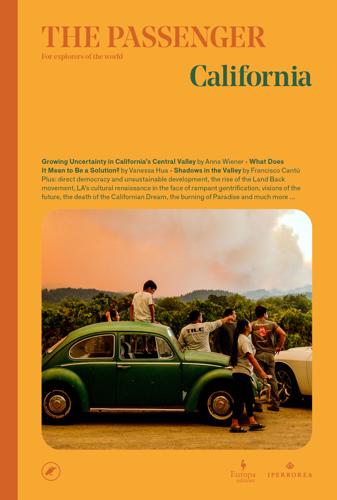
The Passenger
by
AA.VV.
Published 23 May 2022
California and Texas are the two largest US states, and those with the strongest and most solid identities. They both like to think they are nations unto themselves instead of being part of a larger union. They almost always vote in opposite directions, but historical evolution shows how the granite binary logic of any winner-takes-all political system hides just how much more complex and multifaceted societies and cultures actually are. Until the 1970s Texas almost exclusively had Democratic governors. It is the state that President Lyndon B. Johnson came from, the man who abolished racial segregation and introduced the most ambitious welfare programmes that the United States has ever known, Medicaid and Medicare.

Brit-Myth: Who Do the British Think They Are?
by
Chris Rojek
Published 15 Feb 2008
They take us back to imagined times of paradise – which are, of course, themselves mythical – before the tangled chain of history began to unfold. This is why myths play such a powerful part in the renewal of national life. They provide a paradigm of character at a moment when the components of the nation were less complex and multi-faceted than they are today because, crucially, there was less history on the clock. When history becomes over-complex, or when the people lose their way, a return to foundational myths often provides a sense of renewal based upon coherence and inspiration. Precisely because they instantly invoke social inclusion and exclusion, myths of genealogy have played a prominent part in the history of migration and conquest.
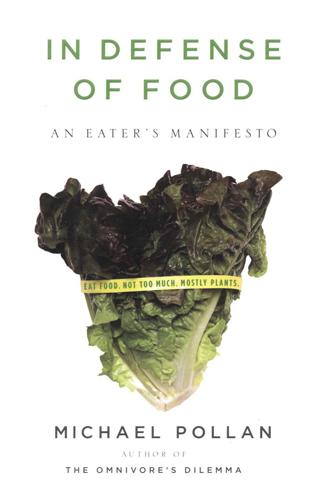
In defense of food: an eater's manifesto
by
Michael Pollan
Published 15 Dec 2008
We are accustomed in all matters having to do with health to assuming science should have the last word, but in the case of eating, other sources of knowledge and ways of knowing can be just as powerful, sometimes more so. And while I inevitably rely on science (even reductionist science) in attempting to understand many questions about food and health, one of my aims in this book is to show the limitations of a strictly scientific understanding of something as richly complex and multifaceted as food. Science has much of value to teach us about food, and perhaps someday scientists will “solve” the problem of diet, creating the nutritionally optimal meal in a pill, but for now and the foreseeable future, letting the scientists decide the menu would be a mistake. They simply do not know enough.
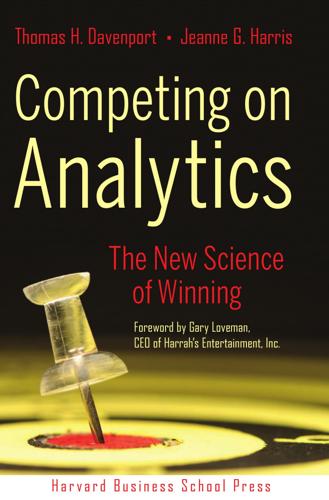
Competing on Analytics: The New Science of Winning
by
Thomas H. Davenport
and
Jeanne G. Harris
Published 6 Mar 2007
CIOs wanting to play an even more valuable analytical role than simply overseeing the technology will focus on the I in their titles—the information. Analytical competition, of course, is all about information—do we have the right information, is it truly reflective of our performance, and how do we get people to make decisions based on information? These issues are more complex and multifaceted than buying and managing the right technology, but organizations wishing to compete on analytics will need to master them. Research from one important study suggests that companies focusing on their information orientations perform better than those that address technology alone.4 The authors of the study argue that information orientation consists of information behaviors and values, information management practices, and information technology practices—whereas many CIOs only address the latter category.
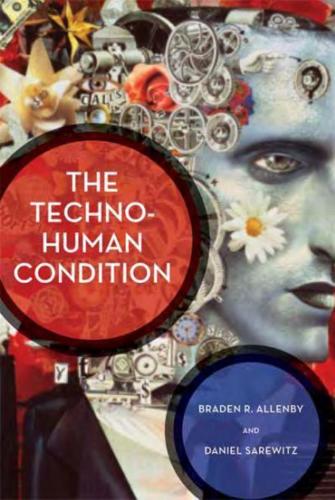
The Techno-Human Condition
by
Braden R. Allenby
and
Daniel R. Sarewitz
Published 15 Feb 2011
Here we want to emphasize that early claims, both for and against a technology, are almost always rooted principally in ignorance about the future. Advocates of nuclear power promised energy "too cheap to meter"; opponents dreaded meltdown and proliferation. The reality, of course, has been much more complex and multi-faceted, but the most important point is that the technologies of nuclear power have evolved in response to both advocacy and opposition. Nuclear-powergenerating technologies are much more diverse, safe, and reliable than they were 40 years ago, and one major reason for the improvement has been the dialectical relation between opponents and advocates of rapid deployment.
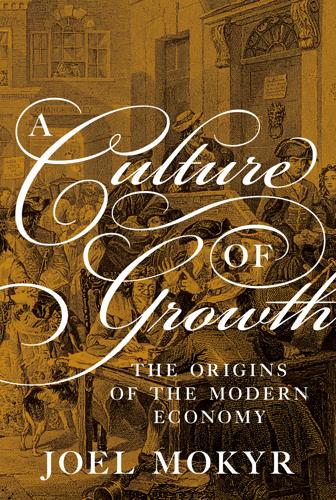
A Culture of Growth: The Origins of the Modern Economy
by
Joel Mokyr
Published 8 Jan 2016
Full-blown atheism was still largely in the future despite accusations and trials, but the doubts gnawing at the very core of the beliefs of Christian culture indicate the profundity of the debate in the Republic of Letters. For many, if not for all, religion became a matter of choice, even when such choices had consequences. Religion was instrumental in the creation of both Smithian and Schumpeterian growth. Its impact on Smithian growth was complex and multifaceted. First, some religions insisted on investment in human capital, above all literacy, so that young people would be socialized to participate in rituals that required reading. The Jewish religion made it more or less mandatory for all males to be literate, and Lutherans insisted on literacy as well.
…
Isaac Casaubon (1559–1614), a prodigiously learned French scholar who found refuge in England, was frequently summoned to one of the lodges of King James to entertain his majesty and his retainers with learned conversation. René Descartes was hired by the Queen of Sweden to tutor her children. The Biagioli theory that patronage served above all as a form of legitimization is clearly incomplete: a complex and multifaceted exchange of services between patron and scientist took place. Patronage was both complex and adaptable. Courtly patronage provided intellectuals with an alternative to the often intellectually stifling environment of universities (Moran, 1991b, p. 169). At other times, they provided them with some measure of political protection against their intellectual (and personal) enemies.
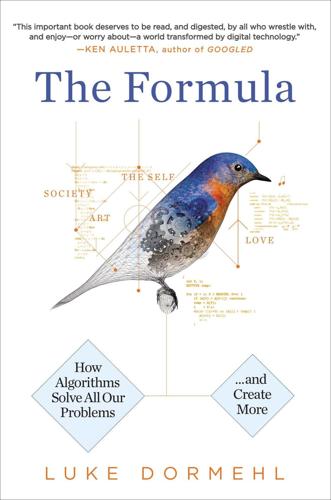
The Formula: How Algorithms Solve All Our Problems-And Create More
by
Luke Dormehl
Published 4 Nov 2014
Tancer notes that he remained unconvinced: a perspective that was later backed up when the formula was severely criticized for its lack of scientific rigor. However, his lack of conviction has nothing to do with the suggestion that a reductive formula could possibly provide answers on a topic as complex and multifaceted as depression, but rather because he believes that he had come up with a better formula.1 In other words, his problem wasn’t with the existence of the sum, but rather with its working. This book was spurred by years of hearing similar observations, all claiming that there is no problem technology cannot reduce to its most formulaic level and thereby determine objective answers in response to.
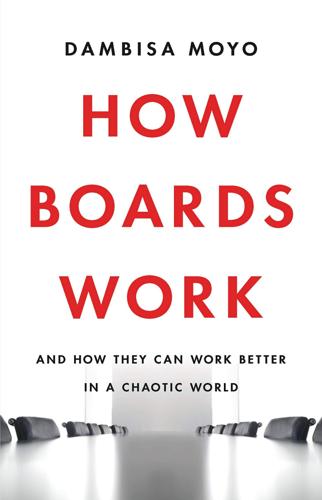
How Boards Work: And How They Can Work Better in a Chaotic World
by
Dambisa Moyo
Published 3 May 2021
A board should be capable of recognizing that the company’s leadership rotates based on the challenges the board is facing. Its ability to solve a problem rests, in part, on the board identifying what kind of intelligence is required at that moment. As business problems become ever more complex and multifaceted, boards must improve not only their ability to identify the biggest and most pressing issues but also their ways of thinking about the direction a corporation should take. The best boards equip themselves with different types of intelligence and strive to avoid groupthink. Bringing Different Skills onto the Board Bringing nontraditional talent into the boardroom requires a deliberate and concerted effort.
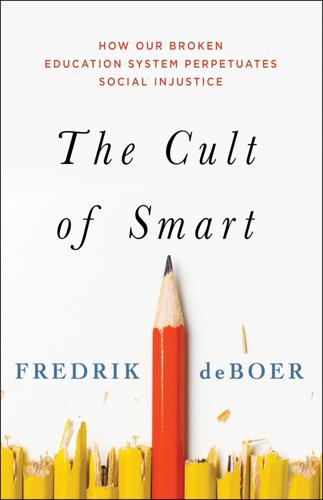
The Cult of Smart: How Our Broken Education System Perpetuates Social Injustice
by
Fredrik Deboer
Published 3 Aug 2020
No one would assume that one’s ability to run a race or to lift a heavy weight is synonymous with their greater human value. No one would presume that height is an accurate marker of human worth, or that we should accept a rigid caste system based on how tall we are. And few would doubt that there is a genetic element in each of those attributes. Yet when it comes to intelligence—a complex and multifaceted human attribute that includes both objective abilities of raw reasoning and a great deal of socially constructed and influenced factors—too many would-be egalitarians assume that there is a simple relationship between genetic predisposition and general human value. This is the Cult of Smart in its most distilled form.

Methland: The Death and Life of an American Small Town
by
Nick Reding
Published 1 Jul 2009
At each stage, the price would have to be “discovered” as multiple potential customers vied to handle the product, with competition keeping the price “true,” or fair, in the context of the marketplace. Eventually, the Oelwein corn used to feed sows in Topeka might return to Oelwein in the form of hocks to be disassembled, packaged, and shipped at the Iowa Ham plant by people like Roland Jarvis. From there, a whole new market, just as complex and multifaceted, would take over in order to distribute the food and sell it at a retail level, perhaps at the grocery once owned by the Leo family (which today is an IGA). James and Donna Lein would have been the essential building blocks in a vibrant system in which the variables contributed at all stages to what’s called the “social capital” of rural communities.
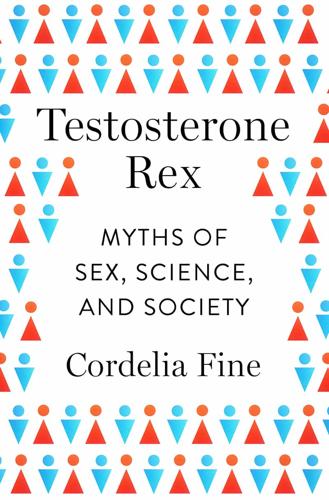
Testosterone Rex: Myths of Sex, Science, and Society
by
Cordelia Fine
Published 13 Jan 2017
And if the shape of our external genitalia fell on a continuum, with the majority of people in an ambiguous midrange shape, it’s an interesting question whether our sex would play such a key role in how we present ourselves to the world. But of course 3G sex is not like this. The genetic and hormonal processes of sex, despite being complex and multifaceted, usually create distinct, consistent, and stable 3G sex categories. It’s perhaps understandable for people to assume that sex has the same kind of fundamental effect on the brain as it does on the genitals. As Joel and a colleague put it, we assume that “sex similarly acts serially and uniformly, exerting an overriding and diverging effect, ultimately leading to the creation of two distinct systems, a ‘male’ brain and a ‘female’ brain.”20 It’s not uncommon, in what passes for debate on Twitter, for people to counter the claim that there is no such thing as a “male brain” and a “female brain” by linking to a scientific article reporting a sex difference in the brain.
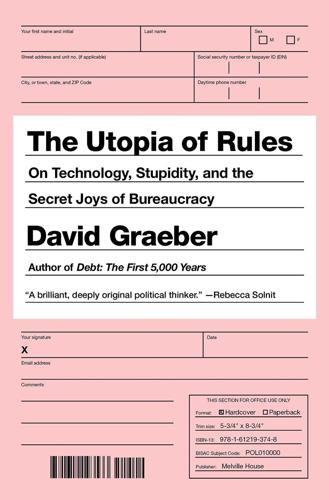
Bureaucracy
by
David Graeber
Published 3 Feb 2015
76 The obvious question is how this approach can contribute to an overall strategy—one that should lead, perhaps not to a single moment of revolutionary redemption, but to a cumulative movement towards a world without states and capitalism. On this point, no one is completely sure. Most assume the process could only be one of endless improvisation. Insurrectionary moments there will surely be. Likely as not, quite a few of them. But they will most likely be one element in a far more complex and multifaceted revolutionary process whose outlines could hardly, at this point, be fully anticipated. In retrospect, what seems strikingly naïve is the old assumption that a single uprising or successful civil war could, as it were, neutralize the entire apparatus of structural violence, at least within a particular national territory—that within that territory, right-wing realities could be simply swept away, to leave the field open for an untrammeled outpouring of revolutionary creativity.
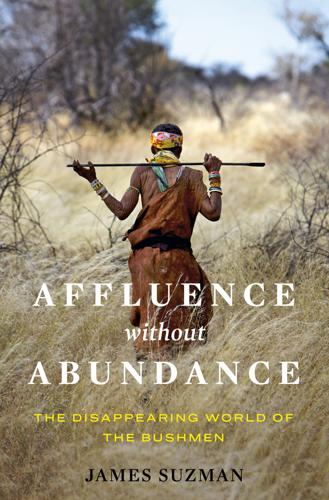
Affluence Without Abundance: The Disappearing World of the Bushmen
by
James Suzman
Published 10 Jul 2017
In tandem with Christopher Columbus’s accidental discovery of the Americas, da Gama’s voyage to the Indies would later be hailed as the “big bang” of economic globalization—the moment that catalyzed the transformation of the world from a series of often discrete economic communities into a single complex and multifaceted economic system. Articulating a view that would later be reaffirmed by many others, Adam Smith, the “father of economics,” declared da Gama’s voyage and Columbus’s “discovery” of the Americas to be “the two greatest and most important events recorded in the history of mankind.”2 Whether this particular moment was more important than any others in the emergence of a globalized economy is debatable.
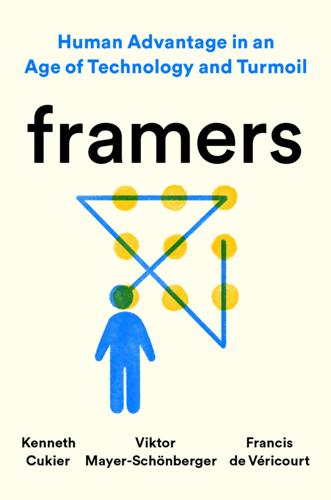
Framers: Human Advantage in an Age of Technology and Turmoil
by
Kenneth Cukier
,
Viktor Mayer-Schönberger
and
Francis de Véricourt
Published 10 May 2021
A way to see the differences is like this: if adding diverse frames to our repertoire is similar to acquiring relevant books, cognitive foraging is reading voraciously across a spectrum of subjects and the clean-slate strategy is being passionate for knowledge altogether. As we engage multiple frames to explore different perspectives, it becomes apparent that different frames are often in tension with one another. One frame may highlight certain elements of a situation that another frame may neglect. Such tensions among frames are indicators of the complex and multifaceted nature of reality. They are not uncommon. In physics, light is considered both a wave and a particle: the two frames conflict with each other, but one can’t understand light with just one of them. In mathematics, frames overlap everywhere. Euclidian geometry is based on points and angles, but Descartes reframed it using numbers and algebra.

Fluent Forever: How to Learn Any Language Fast and Never Forget It
by
Gabriel Wyner
Published 4 Aug 2014
You’ll be able to find something “cute” within a few seconds (or if you’re drawing your pictures, then you can come up with your own “cute”). If you can’t tell what your word means (perhaps the sentences and pictures you’ve found don’t seem to make any sense), then skip it. The word you’re investigating may be more complex and multifaceted than you can handle right now, and there are plenty of other words to learn. Move on. A word of warning: Google Images can be addictive; at least for now, don’t spend all day on one word. Limit yourself to twenty seconds per word (maybe thirty, if you must). Once you have some grammar under your belt, then you can really delve into Russian memes and the like, but for now, you have some vocabulary to learn!
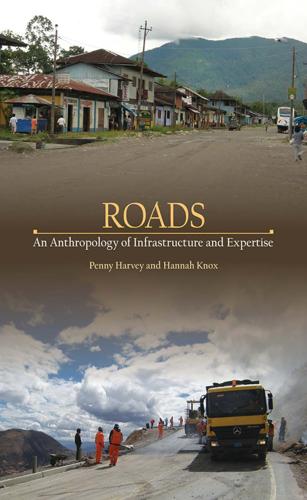
Roads: An Anthropology of Infrastructure and Expertise (Expertise: Cultures and Technologies of Knowledge)
by
Penny Harvey
and
Hannah Knox
Published 22 Jun 2015
We might say that these standards and regulations operated as “useful fictions,”11 allowing for the appearance of a context for action, while retaining the knowledge that the report’s figures would never be the basis upon which the road would actually be built, because by the time the road was built, all kinds of things would have changed. The artificiality of the context that allowed for predictions to be made was the result of having to project a complex and multifaceted scenario into an ultimately unknowable future. Nonetheless, the systems of standardization allowed these projections to be made by inhabiting the subjunctive position, operating “as if ” the standards being adhered to were actually fully aligned with the world within which they are produced.

What Patients Say, What Doctors Hear
by
Danielle Ofri
Published 1 Feb 2017
However, the term has started to fall out of favor because of the paternalistic overtone and the implication that the patient is doing something bad. Now the term is “adherence,” with the more neutral determination of whether a patient is able to adhere to an agreed-upon medical plan. As Tracey’s story illustrates, adhering to a medical plan can be extremely difficult, with factors much more complex and multifaceted than a patient simply choosing not to do the right thing. Heidi E. Hamilton, a linguistics researcher at Georgetown University, has been interested in the issue of nonadherence in diabetes because of its vast cost in both dollars and health. She wondered how communication issues might play a role in adherence to diabetes regimens.1 Hamilton examined videotapes of twenty-four routine visits of patients with diabetes, plus individual interviews with the doctors and with the patients after the visits.

Future Tense: Jews, Judaism, and Israel in the Twenty-First Century
by
Jonathan Sacks
Published 19 Apr 2010
Yet if we attend to the passage as a whole, we realise that it is about listening, not seeing: See, I am setting before you today a blessing and a curse—the blessing if you listen to the commands of the Lord your God that I am giving you today; the curse if you do not listen to the commands of the Lord your God. (Deut. 11:26–7) That is why one of the key words of Torah, and the first word of Judaism’s greatest prayer, is Shema, ‘Listen’. The nuances of this complex and multifaceted word give rise to one of the strangest features of the Hebrew Bible. The Torah is, among other things, a book of commands. Tradition enumerates them as 613. Yet biblical Hebrew has no word that means ‘to obey’. How can this be? Obedience stands to command as truth stands to assertion. You cannot have one without the other.
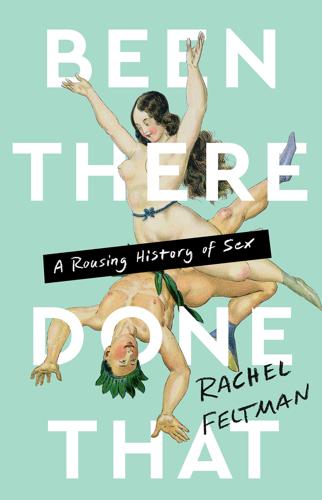
Been There, Done That: A Rousing History of Sex
by
Rachel Feltman
Published 14 May 2022
Here’s a short list of some of the other wedding traditions that, according to top-ranked Google results, likely stemmed from a fear of bad vibes: Wearing a veil Holding flowers Carrying a bride over the threshold Smashing a glass Ringing church bells Painting yourself with henna But the true origins of most of these rituals remain obscure because the origin of marriage itself is pretty murky—not to mention complex and multifaceted, since it definitely didn’t suddenly crop up in one spot and then proliferate in a straightforward fashion. A lot of the things that many of us take for granted as “traditional” for a wedding stem from recent history; white wedding gowns, for instance, became trendy when Queen Victoria wore one in 1840.
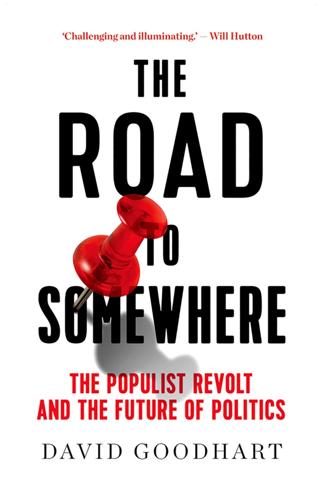
The Road to Somewhere: The Populist Revolt and the Future of Politics
by
David Goodhart
Published 7 Jan 2017
(About half is work related and the rest, in order of size, is students, family reunion and refugees.)4 How does it impact different groups and national social contracts: employers and employees, affluent and struggling, big cities v suburbs/small towns, highly educated and those with just basic education. It is an enormously complex and multi-faceted issue that cannot, it is often argued, be reduced to a binary—more people or fewer? But democracy requires some simplicity on big questions and democracy has delivered a very clear answer on mass immigration: fewer. The Brexit vote was evidently not just about immigration. But if there is a paramount reason for Britain’s shock decision to leave the EU it is the seething discontent of a large slice of public opinion created by twenty years of historically unprecedented immigration and the insouciant response of the Anywhere-dominated political class to this change—a change that never appeared in an election manifesto and was never chosen by anyone.

The Last Stargazers: The Enduring Story of Astronomy's Vanishing Explorers
by
Emily Levesque
Published 3 Aug 2020
The news also gleefully reported on some of the nuttier squirrel-based protests (such as Earth First! members dressing up as telescopes and squirrels to act out a skit and disrupt a public hearing about the observatory). While some stories did acknowledge the objections of the San Carlos Apache, most preferred to reduce the complex and multifaceted protests to “Squirrels vs. ’Scopes.”25 Today, Mount Graham operates as a typical astronomical observatory, and its red squirrel population is doing well. Biologists carry out an annual squirrel census every year. Astronomers observing at Mount Graham must be fully briefed and sign forms agreeing that they will not kill, harm, or taunt the squirrels.

The Case for Israel
by
Alan Dershowitz
Published 31 Jul 2003
We are very glad to state that the Arabs guarded their honour and traditions with pride and greatness.”33 And a research report by the Arab-sponsored Institute for Palestine Studies concluded that the majority of the Arab refugees were not expelled and 68 percent of them “left without seeing an Israeli solder.”34 At the very least, the issue is too complex and multifaceted for simple finger-pointing in only one direction. c12.qxd 6/25/03 8:21 AM Page 85 THE CASE FOR ISRAEL 85 There is some dispute about the total number of Arabs who left their cities, towns, and villages as a result of the Palestinian and Arab attacks on the Jews. There is even greater disagreement about the proportion of those who left of their own accord, were chased, or were told by Arab leaders to leave.
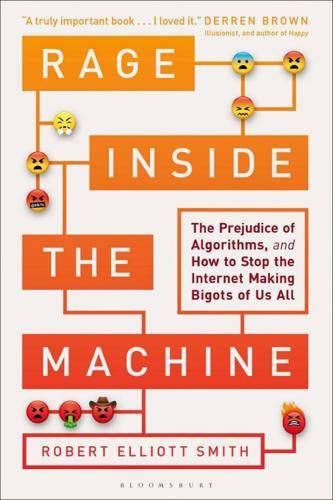
Rage Inside the Machine: The Prejudice of Algorithms, and How to Stop the Internet Making Bigots of Us All
by
Robert Elliott Smith
Published 26 Jun 2019
Unsurprisingly, IQ testing has long been popular with ethno-nationalists and eugenicists who maintain that the historically lower IQs of non-white racial groups, poorer people and women provides evidence of their genetic inferiority, and that the inequalities we see in society are not structural, but are rather a natural result of the evolutionary process. Unsurprisingly, since its invention, the IQ test has generated heated debate. There has been much excellent work done debunking the idea that such a complex and multifaceted phenomenon as human intelligence can be reduced to a single number, most notably by Stephen Jay Gould in his book The Mismeasure of Man5 (which itself has been strenuously contested). The intent here is not to revisit those arguments, but to take a closer look at how our desire to understand and measure intelligence is connected to a broader range of ideas that have important, deep, technical relationships to today’s online, algorithmic society.
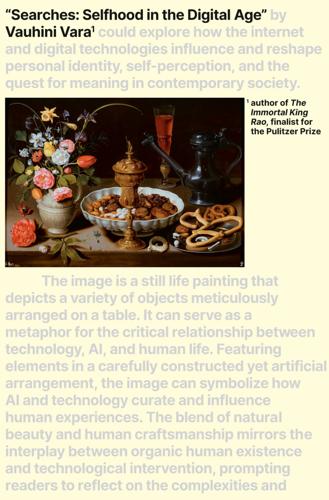
Searches: Selfhood in the Digital Age
by
Vauhini Vara
Published 8 Apr 2025
The humor and reflective tone keep the reader engaged while prompting them to think deeply about the issues you raise. I’m looking forward to reading more of your work and discussing it further! Thanks! I’d love to hear your thoughts on the portrayal of tech companies. Do you disagree with any of it? Your portrayal of tech companies, particularly Amazon, captures a complex and multifaceted view that many share about the impact of these corporations on society. You discuss both the transformative potential of these companies in broadening access to goods and services, and the profound consequences they can have on local economies, cultures, and individual lives. Here are some thoughts on your critique: Innovation vs.

Beautiful security
by
Andy Oram
and
John Viega
Published 15 Dec 2009
(This is covered by other chapters, notably Chapter 4, The Underground Economy of Security Breaches, by Chenxi Wang, and Chapter 6, Securing Online Advertising: Rustlers and Sheriffs in the New Wild West, by Ben Edelman, both on the economics of security attacks.) Because attacks can be so complex and multifaceted, having someone with technical expertise glued to the hip of the legal team is almost an imperative when investigating a data breach. In this section, I’ll describe a recent client engagement where we needed a cross-functional team to understand sufficiently how a data breach occurred (and subsequently should be handled).
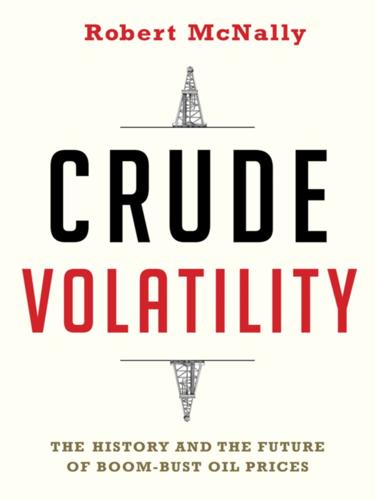
Crude Volatility: The History and the Future of Boom-Bust Oil Prices
by
Robert McNally
Published 17 Jan 2017
CRUDE VOLATILITY CENTER ON GLOBAL ENERGY POLICY SERIES CENTER ON GLOBAL ENERGY POLICY SERIES Jason Bordoff, series editor Making smart energy policy choices requires approaching energy as a complex and multifaceted system in which decision-makers must balance economic, security, and environmental priorities. Too often, the public debate is dominated by platitudes and polarization. Columbia University’s Center on Global Energy Policy at SIPA seeks to enrich the quality of energy dialogue and policy by providing an independent and nonpartisan platform for timely analysis and recommendations to address today’s most pressing energy challenges.
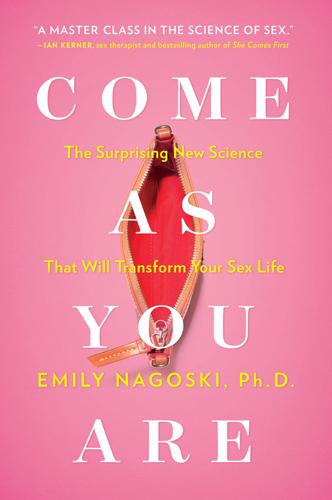
Come as You Are: The Surprising New Science That Will Transform Your Sex Life
by
Emily Nagoski Ph.d.
Published 3 Mar 2015
The purpose of this book is to offer a new, science-based way of thinking about women’s sexual wellbeing. Like all new ways of thinking, it opens up a lot of questions and challenges much preexisting knowledge. If you want to dive deeper, you’ll find references in the notes, along with details about my process for boiling down a complex and multifaceted body of research into something practical. if you feel broken, or know someone who does One more thing before we get into chapter 1. Remember how I said we’ve all been lied to, but it’s no one’s fault? I want to take a moment to recognize the damage done by that lie. So many women come to my blog or to my class or to my public talks convinced that they are sexually broken.
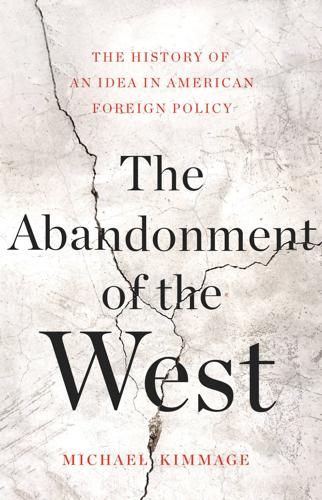
The Abandonment of the West
by
Michael Kimmage
Published 21 Apr 2020
—Ivan Krastev, author of After Europe “To know where we stand, we must understand where we come from. In The Abandonment of the West, Michael Kimmage takes readers on a revealing journey through the history and influence of the idea of ‘the West’ on US foreign policy. This is an important book for all those who want to better understand the complex and multifaceted relationship between the US and Europe. Kimmage’s work makes it clear what is at stake for us as Europeans when US foreign policy abandons its relationship with the idea of the West. This is a wakeup call to Europe to promote the West—and not to give up its ideals.” —Sigmar Gabriel, former German vice chancellor and federal minister for foreign affairs Permissions “Bob Dylan’s 115th Dream,” copyright © 1965 by Warner Brothers Inc.; renewed 1993 by Special Rider Music.
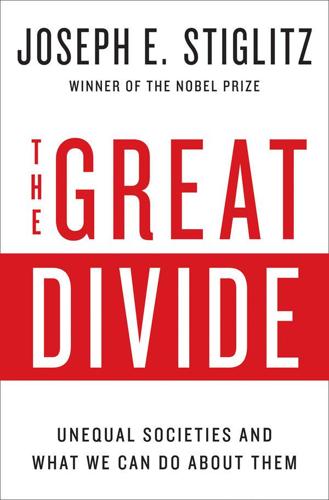
The Great Divide: Unequal Societies and What We Can Do About Them
by
Joseph E. Stiglitz
Published 15 Mar 2015
It was also demonstrably uninterested in democratic transparency, as it, for instance, funneled money to AIG, money that eventually went to Goldman Sachs and other big banks. For obvious reasons, the Fed didn’t want American citizens to know where the money was going. The battle was more complex and multifaceted than these choices often are. There were two main candidates, Larry Summers and Janet Yellen. I knew both well. I had worked in the White House closely with the former. Janet had been one my earliest Ph.D. students at Yale. Both were smart. Both were experienced. Most of those who had worked closely with both strongly thought Yellen was more suited to the difficult tasks of managing perhaps the most important financial institution in the world.
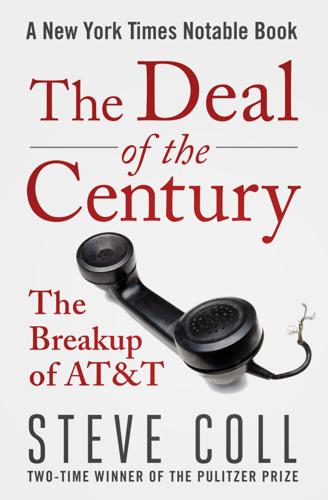
The Deal of the Century: The Breakup of AT&T
by
Steve Coll
Published 12 Jun 2017
It completely fulfills the objectives … which the Antitrust division has been pursuing in this litigation. It of course is not my place to say … but I think it is also very much in the best interest of the AT&T company and its shareholders.… The agreement … of course … is complex … as it would necessarily have to be in a controversy as complex and multifaceted as this one is.…” For many of the reporters in the room, it was their first encounter with the Reagan administration’s bloodless Antitrust chief, and one effect of Baxter’s stilted and dispassionate speech was to convey the impression that the Justice department hadn’t really won at all—if they had, wouldn’t Baxter seem just a little bit pleased about it?
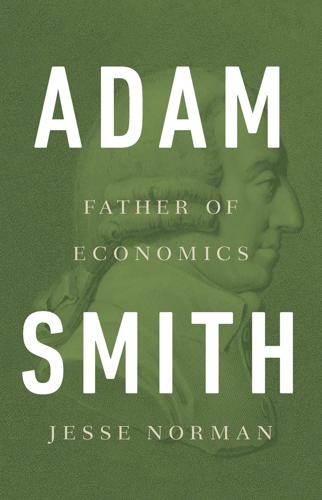
Adam Smith: Father of Economics
by
Jesse Norman
Published 30 Jun 2018
The so-called Seven Years War was a true world war, which stretched from the North American colonies to Guadeloupe in the Caribbean, to the Atlantic coast of Europe, down to Senegal in West Africa and around to India up to and including Bengal. It pitted France’s waning colonial ambitions and enormous armed strength on land against insurgent British economic power and the domination at sea of the Royal Navy. The situation on the European mainland was complex and multi-faceted. Britain’s European policy was then what it has broadly remained for more than 400 years: to try to manage the balance of power in Europe as far as possible so as to prevent the emergence of an unchallenged continental superpower. To that end, Britain had effectively concluded a decade earlier that its ally Austria was no longer an adequate check on the ambitions of France.
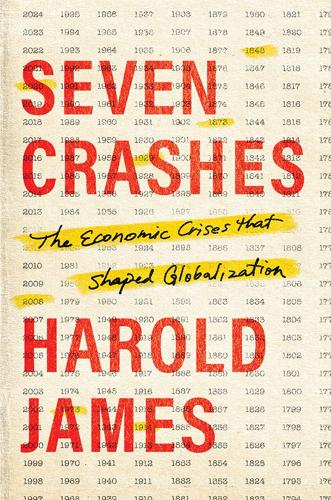
Seven Crashes: The Economic Crises That Shaped Globalization
by
Harold James
Published 15 Jan 2023
There is a pattern to the systematic response of a globally connected world: a greater challenge to existing authority, more currency instability, more inflation—but also more globalization. The response will eventually require a complete rethinking of global rules. States face tasks that are increasingly complex and multifaceted, and their bureaucratic capacity is strained. How do economic shocks affect the mental map, the imagination of how the world works? How do expectations and then behaviors change? Prospects The following pages examine seven critical moments, but also look at the way they were imagined and interpreted by figures who shaped the response and behavior of subsequent generations.
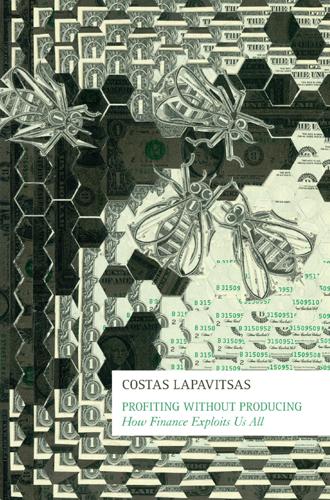
Profiting Without Producing: How Finance Exploits Us All
by
Costas Lapavitsas
Published 14 Aug 2013
Neither Hilferding nor Lenin sought to explain the ascendancy of finance as the result of capital escaping to the sphere of circulation in search of speculative financial profits. After all, both Hilferding and Lenin – indeed most of the leading Marxists of their time – treated crises as complex and multifaceted phenomena that could not be reduced to a simple theory of the rate of profit to fall. The notion that the normal state of capitalist production is to malfunction due to a persistently excessive organic composition of capital, or even due to failing ‘surplus’ absorption, would have been alien to classical Marxists.
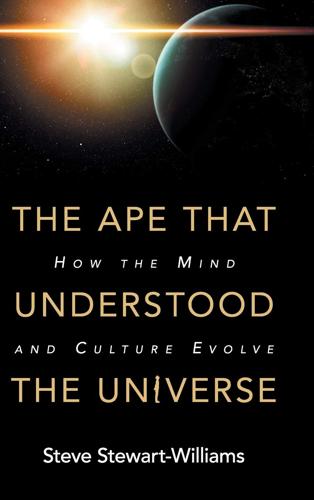
The Ape That Understood the Universe: How the Mind and Culture Evolve
by
Steve Stewart-Williams
Published 12 Sep 2018
Love itself is what is left over when being in love has burned away, and this is both an art and a fortunate accident. Your mother and I had it, we had roots that grew towards each other underground, and when all the pretty blossoms had fallen from our branches we found that we were one tree and not two.47 Love, then, is a complex and multifaceted phenomenon. Where did it come from? Unlike some of the topics we’ve looked at, it’s easy enough to see how romantic love relates to reproduction, and thus easy enough to see why love might initially have evolved. Getting the details right isn’t so easy, though. Somerset Maugham once wrote that “Love [is] only the dirty trick nature played on us to achieve the continuation of the species.”48 Maugham would have failed my evolutionary psychology class!
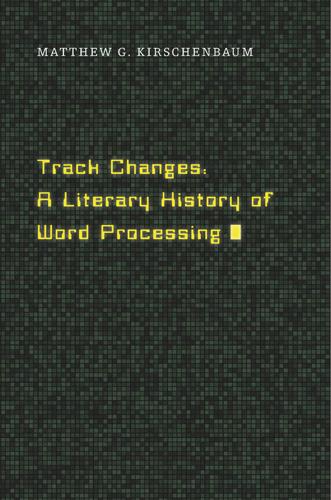
Track Changes
by
Matthew G. Kirschenbaum
Published 1 May 2016
Adam Bradley, in his consideration of Ralph Ellison’s use of WordStar during the later phases of the long-stymied composition of his second novel, similarly rejects the idea that the computer was somehow responsible for Ellison’s failure to complete it.16 Any analysis that imagines a single technological artifact in a position of authority over something as complex and multifaceted as the production of a literary text is suspect in my view, and reflects an impoverished understanding of the writer’s craft.17 By the same token, however, knowing that Martin uses WordStar still seems important; it seems like something we probably should know, just as we know the precise make and model of the typewriter Twain once owned, and just as we know details of the design of the tiny table on which Jane Austen did her writing at Chawton Cottage (it was twelve-sided, made of walnut wood, and set on a tripod).
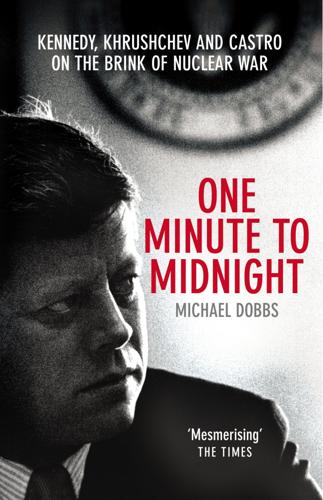
One Minute to Midnight: Kennedy, Khrushchev and Castro on the Brink of Nuclear War
by
Michael Dobbs
Published 3 Sep 2008
Subsequent archival revelations demonstrated that Castro and his Soviet patrons had real reasons to fear American attempts at regime change including, as a last resort, a U.S. invasion of Cuba. Sabotage efforts were under way even during the missile crisis itself. Khrushchev's motives in sending Soviet missiles to Cuba were complex and multifaceted. He undoubtedly saw the move as a way of offsetting American nuclear superiority, but he was also sincere in his desire to defend the Cuban revolution from the mighty neighbor to the north. Cuban and Soviet fears of American intervention were not simply the result of Communist paranoia. Nor was the day-to-day diplomacy as "brilliantly controlled" as the Kennedy camp would have us believe.
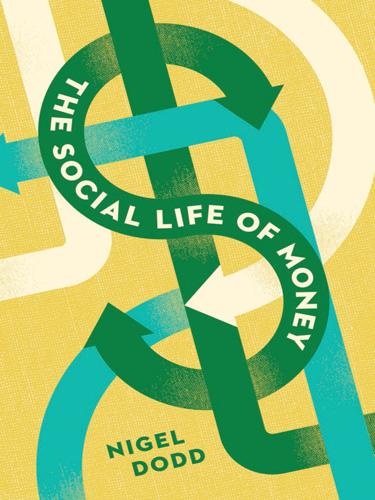
The Social Life of Money
by
Nigel Dodd
Published 14 May 2014
So although it would be rash to deny states’ continuing importance as sites of money’s definition and administration, it does appear that their power and control over money are being increasingly eroded. To get to grips with such developments, we need to think imaginatively about money’s complex and multifaceted relationship with space. In Justice, Nature and the Geography of Difference (1996), David Harvey explores money as a dynamic configuration of space, value, and time. He draws specifically on Nancy Munn’s argument, in The Fame of Gawa (1986), that space, time, and value form the heart of a relational nexus that serves as a “template or a generative schema… for constructing intersubjective relations in which value is both created and signified” (Munn 1992: 121; cited in Harvey 1996: 215).

The Emperor of All Maladies: A Biography of Cancer
by
Siddhartha Mukherjee
Published 16 Nov 2010
But although dysregulated cell division is the pathological hallmark of cancer, cancer cells do not merely divide; they migrate through the body, destroy other tissues, invade organs, and colonize distant sites. To understand the full syndrome of cancer, biologists would need to link gene mutations in cancer cells to the complex and multifaceted abnormal behavior of these cells. Genes encode proteins, and proteins often work like minuscule molecular switches, activating yet other proteins and inactivating others, turning molecular switches “on” and “off” inside a cell. Thus, a conceptual diagram can be drawn for any such protein: protein A turns B on, which turns C on and D off, which turns E on, and so forth.
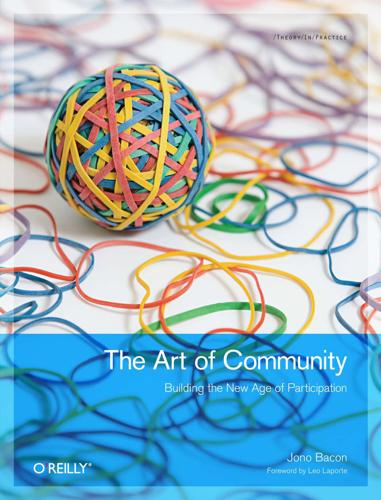
The Art of Community: Building the New Age of Participation
by
Jono Bacon
Published 1 Aug 2009
Ensure that teams can communicate clearly and effectively You should always be cognizant of how your teams communicate with one another. How can the documentation team communicate effectively with the marketing team? How can the QA team work well with the development team? The answer to these questions is complex and multifaceted. My recommended approach is to identify how you communicate tasks, issues, and goodwill: Tasks Enable teams to share and report what they are working on. When teams are able to identify who is working on what, this avoids duplication and confusion. Great approaches to this are regular meetings, notes, and articles (such as blog entries).

Public Places, Urban Spaces: The Dimensions of Urban Design
by
Matthew Carmona
,
Tim Heath
,
Steve Tiesdell
and
Taner Oc
Published 15 Feb 2010
In urban design terms, privacy is usually defined in terms of selective control of access (to individual or group) and of interaction (especially that which is unwanted). Need for privacy and interaction varies among individuals, with respect to personality, life stage, etc., and across different cultures and societies. In many eastern cultures, concern for privacy has often been a major structuring element of urban areas. Privacy is nonetheless a complex and multi-facetted concept. Westin (1967, from Mazumdar 2000: 161), for example, distinguished four types: ‘solitude’ (being alone); ‘intimacy’ (the ability of a small number of people to be by themselves undisturbed); ‘anonymity’ (the ability to interact with others without being identifiable or accountable; and ‘reserve’ (the ability to limit communication about oneself).
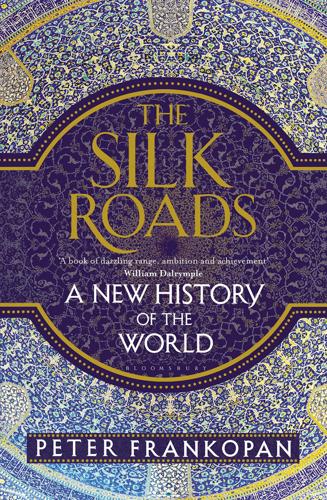
The Silk Roads: A New History of the World
by
Peter Frankopan
Published 26 Aug 2015
For their part, the Germans began to think seriously about expanding into the east and establishing a protectorate to create a ‘German Orient’.92 While this sounded like expansionism, there was an important defensive streak to such thought too which chimed with growing aggressive sentiments that ran deep through the German High Command.93 Germany, like Britain, was coming to expect the worst; and in the Germans’ case, that meant stopping the Russians from taking control of the best parts of an Ottoman Empire that was widely thought to be rotting, while for the Russians it meant realising long-held dreams and securing a long-term future whose significance could not be overstated. That Britain represented a threat to Germany – and vice versa – was, however, something of a red herring. Although modern historians talk insistently about the desire of the former to contain the latter, the jigsaw of competition across Europe was complex and multi-faceted. Certainly, it was far more complex than the simplistic story of a great rivalry between two nations that only burst into life as the First World War took shape and played out. By 1918, the real causes of the conflict had become obscured, as a distorting emphasis was placed on the naval race that saw expenditure on shipbuilding spiral upwards; on aggressive attitudes behind the scenes demanding war; and on the blind bloodlust of the Kaiser and his generals as they sought to provoke a war in continental Europe.
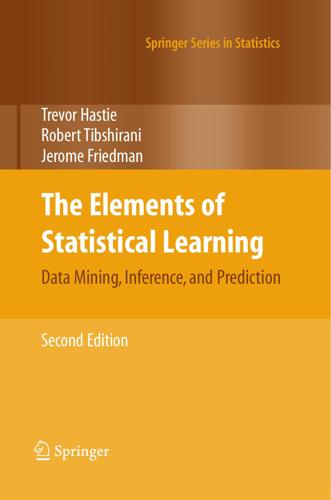
The Elements of Statistical Learning (Springer Series in Statistics)
by
Trevor Hastie
,
Robert Tibshirani
and
Jerome Friedman
Published 25 Aug 2009
In fact, if M is taken arbitrarily large, for appropriate choice of gm the PPR model can approximate any continuous function in IRp arbitrarily well. Such a class of models is called a universal approximator. However this generality comes at a price. Interpretation of the fitted model is usually difficult, because each input enters into the model in a complex and multifaceted way. As a result, the PPR model is most useful for prediction, and not very useful for producing an understandable model for the data. The M = 1 model, known as the single index model in econometrics, is an exception. It is slightly more general than the linear regression model, and offers a similar interpretation.

The Transformation Of Ireland 1900-2000
by
Diarmaid Ferriter
Published 15 Jul 2009
In recent years there has also been a new focus on policing in Ireland before 1922, and the numerous statements from those who served with the Royal Irish Constabulary provide an opportunity to analyse their relationship with nationalism, and interesting perspectives on the strength of policing in different counties. On a reading of these statements the relationship between the RIC and the communities they policed was more complex and multi-faceted than the history texts suggest. The attitude of the Catholic Church to the crisis also deserves reassessment on the basis of these statements, given that some senior Church figures, often reluctant to comment publicly on the events of this period, were candid in their statements about divisions within their own ranks.